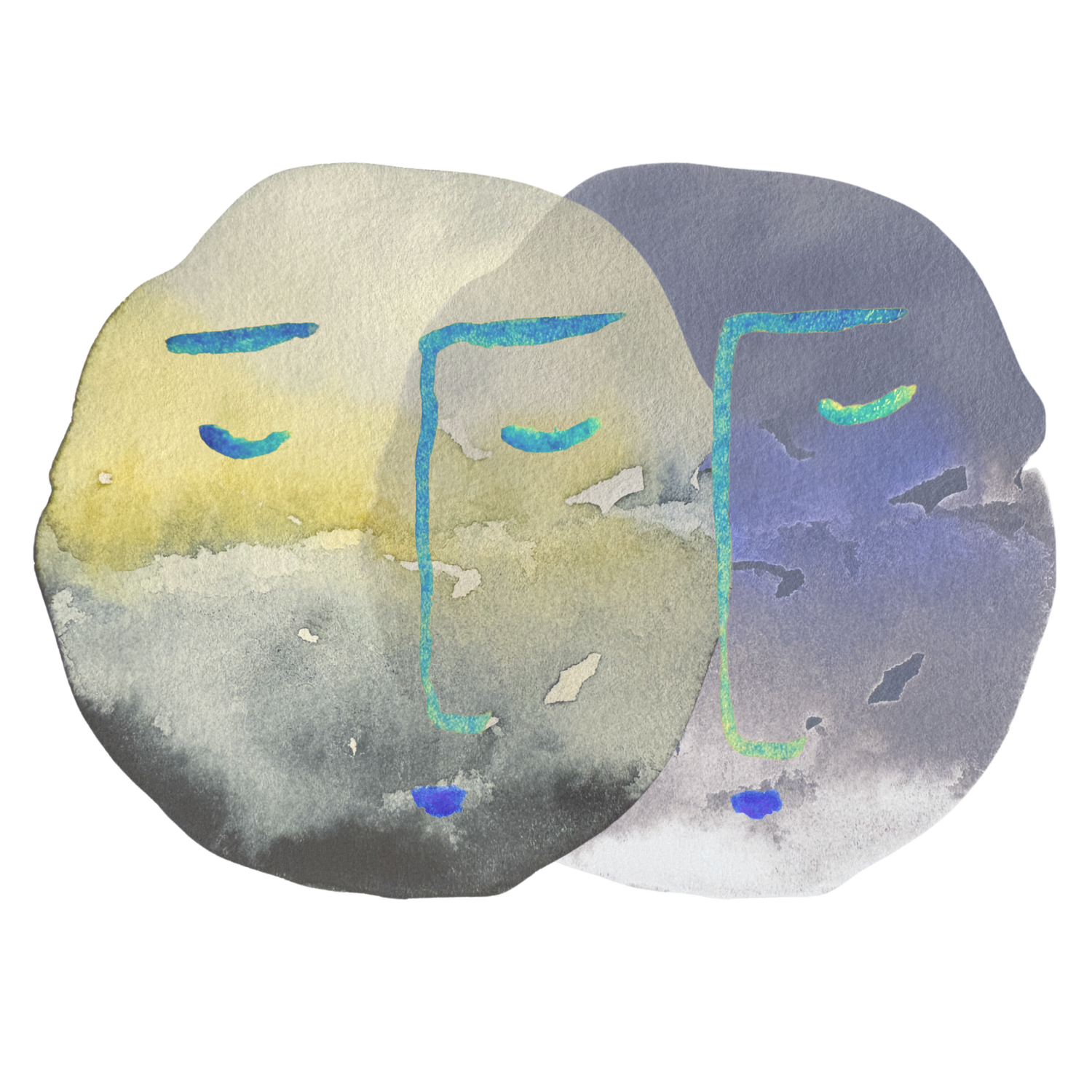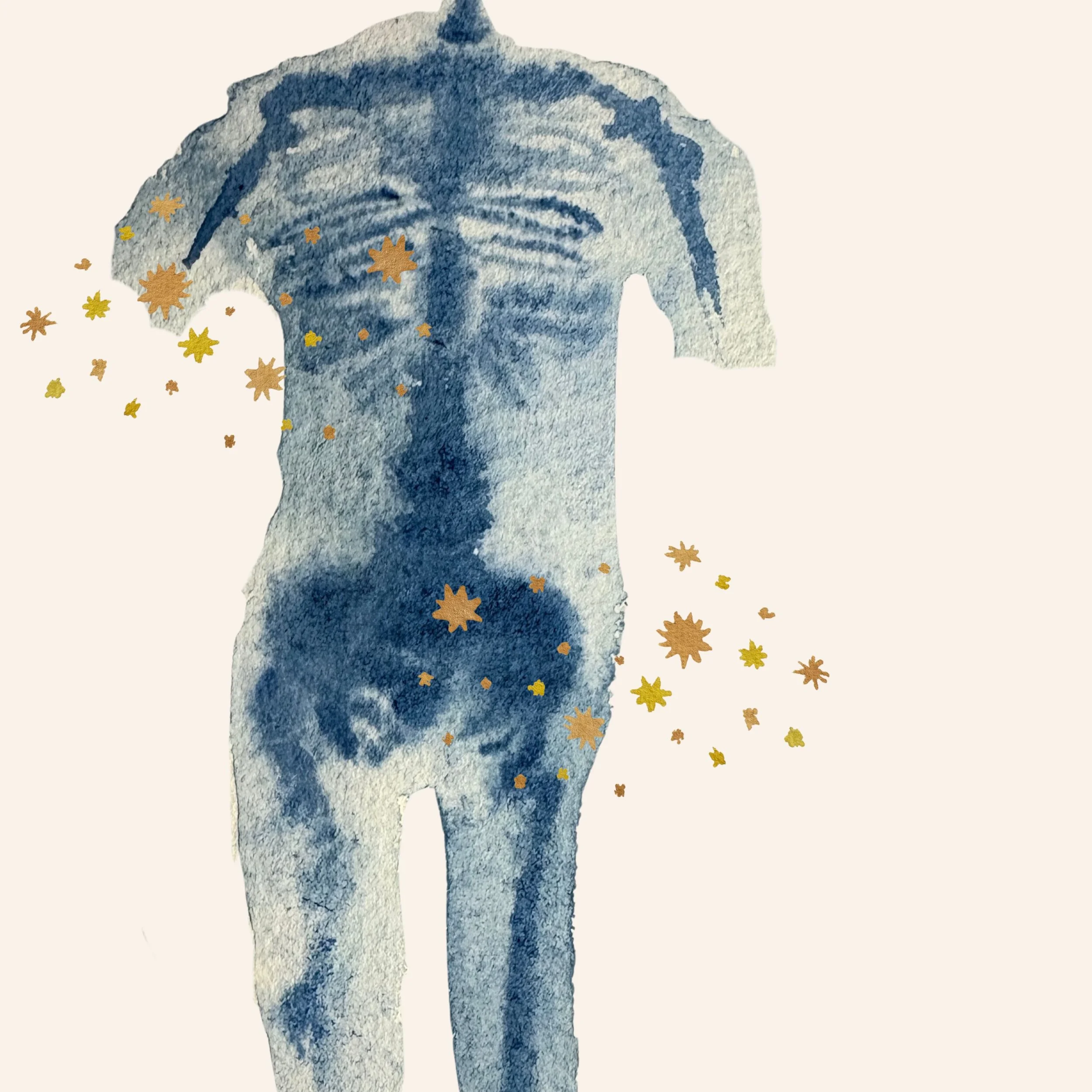The Nervous System
Connect with your Nervous System this week through the Afterglow Body Appreciation practice. Your nervous system contends everyday with personal and collective pressures. This practice will help you integrate compassion for your nervous system, leaving you in an abiding state of calm.
Excerpts
— The sympathetic nervous system responds to acute stressors, also known as the flight or flight response. It signals to the brain to pump adrenalin and cortisol into our system while temporarily shutting off energy to things like digestion. This allows us access to increased strength and speed and ability to navigate or take in information.
Once the stressor is dealt with, it is able to hand functioning back over to the parasympathetic nervous system.
Typically, in a healthy system, our parasympathetic nervous system transfers information throughout the body through neurons. This system supports the everyday at-rest functions of the body, including our digestion, urinary systems, sexual systems, blood circulation and respiratory systems.
— For any who are new to Jung, he presented us with the concept of the collective unconscious. A broad and foundational area of his work, this is the playground he gave us for understanding archetypes. The collective unconscious spans cultural and geographical influence, and goes deep back in time, the psyche continuing through our evolution from fish to ancient primates. The collective unconscious surrounds our personal unconscious and it is a vital part of individuation for each of us to balance the tension of the conscious and the unconscious. The collective unconscious is the playground of archetypes. Shapes and descriptions of archetypes are easily understood by all, for example the warrior, or the trickster, a divine mother, or king, there isn’t really an end to the list, but there tend to be several dozen familiar ones that appear frequently in mythology, stories, religions, and even within our own family systems. When we overly identify with one of many of these archetypes, Jungians may say, “this person is possessed by the archetype of the martyr.” Implying that the person has wrapped themselves in the costume of the archetype as a way to avoid self discovery, as a way to protect themselves, or maybe as a way to find relevance or receive kindness. Through inner work and therapy we can find these patterns of behaviour within us and begin to separate out from them, embracing their natural opposite, finding more balance in the tension of the opposites. It is not to say that archetypes are bad, they are a framework to name the shape of something, a set of behaviours or characteristics that belong to forces that had one foot in argentina and one foot in south africa. There are modern archetypes, especially as people grapple with technology, there are archetypes that may resemble ancient shapes, yet modern language is necessary to remind us that we are dealing with the unknown.
— Our brains have evolved with parts of it being nicknamed the lizard brain, to remind us that there is ancient coding in us to recognise the shape of a snake in the grass, and that triggers our sympathetic nervous system to respond. Jung writes:
Just as a man has a body which is no different in principle from that of an animal, so also his psychology has a whole series of lower storeys in which the spectres from humanity’s past epochs still dwell, when the animal souls from the age of Pithecanthropus and the hominids, then the “psyche” of the cold-blooded saurians, and, deepest down of all, the transcendental mystery and paradox of the sympathetic and parasympathetic psychoid systems. ~Carl Jung, CW 14, Para 279
— Eventually I could no longer live alone, unable to stand for more than a few minutes at a time, unable to walk, or drive, cook, or shower standing up. What it felt like to be in that state was this: I would be feeling somewhat normal for a few minutes and then all of a sudden it felt as though I was drugged, the floor would swim and my limbs would feel extremely weak, as though I simply could not hold myself up. I felt perpetually that I was going to fall off a cliff any second. I had had many experiences of this for a few years but they would be so sporadic that I never sought help. It wasn’t until they began happening continuously that I realised something was very wrong. I once caught an Uber to drive me 200 metres. I could not walk up three or four steps without support.
— Psychosomatic disorders are essentially the nervous systems response to psychological stress. Jung has referred to the nervous system as a way to see the shadow. He quotes:
The shadow is a tight passage, a narrow door, whose painful constriction no one is spared who goes down to the deep well. But one must learn to know oneself in order to know who one is. For what comes after the door is, surprisingly enough, a boundless expanse full of unprecedented uncertainty, with apparently no inside and no outside, no above and no below, no here and no there, no mine and no thine, no good and no bad.
It is the world of water, where all life floats in suspension; where the realm of the sympathetic system, the soul of everything living, begins; where I am indivisibly this and that; where I experience the other in myself and the other-than-myself experiences me. ~Carl Jung, CW 9i, Para 45

